Electric Ford F-150 Lightning revealed
The 2022 Ford F-150 Lightning pickup has been revealed with a starting price under $40G. The all-electric truck is the most powerful F-150 ever and offers a range up to 300 miles per charge.
April 26 marked the official start of production for the electric Ford F-150 Lighting and yet another milestone … in the rise of the robots.
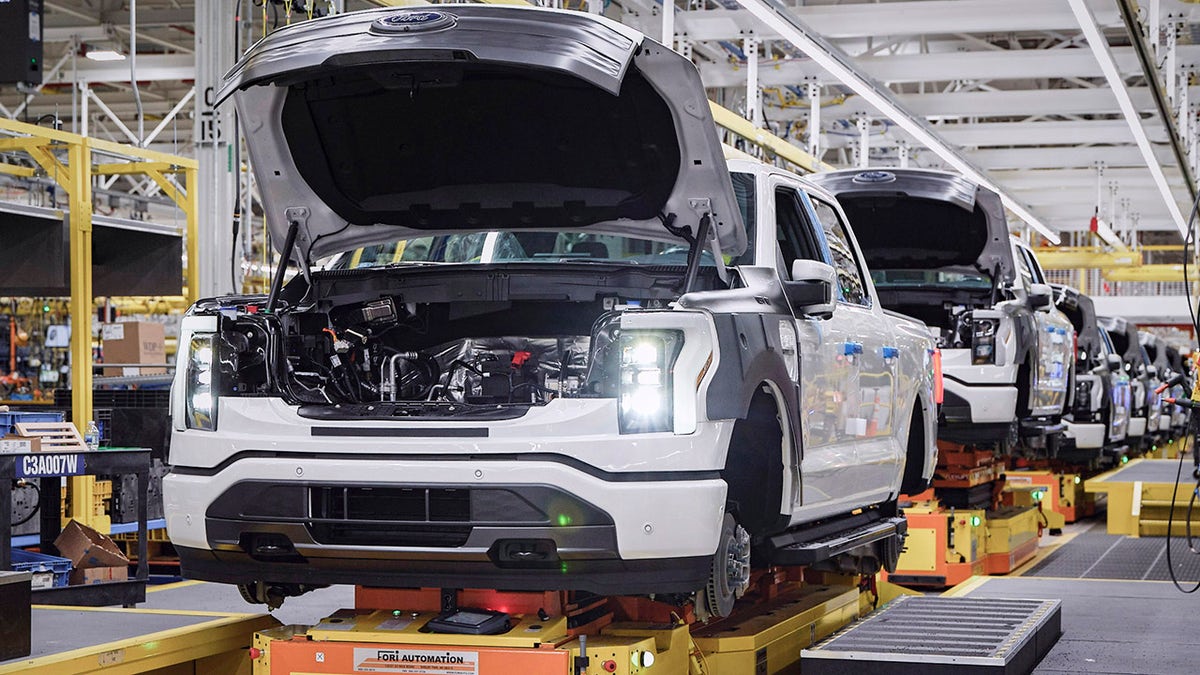
The F-150 Lightning is built at the Rouge Electric Vehicle Center. (Ford)
The F-150 Lightning is built with a unique assembly system in Ford's Rouge Electric Vehicle Factory in Dearborn where humans and robots really do work side by side.
Instead of using a fixed assembly line, the trucks are transported between some stations on autonomous caddies that can be reprogrammed for different tasks and can stop for people that get in their way.
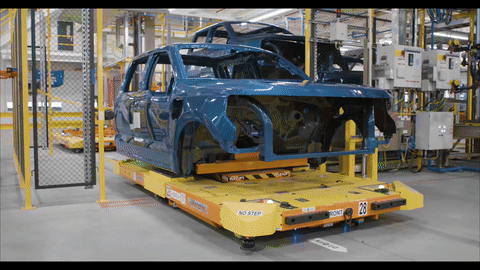
Robot caddies carry the F-150 Lightning from station to station. (Ford)
The head of ford's electric vehicle programs, Darren Palmer, told Fox News Autos that they add a new level of flexibility to the process and allow for additional quality checks.
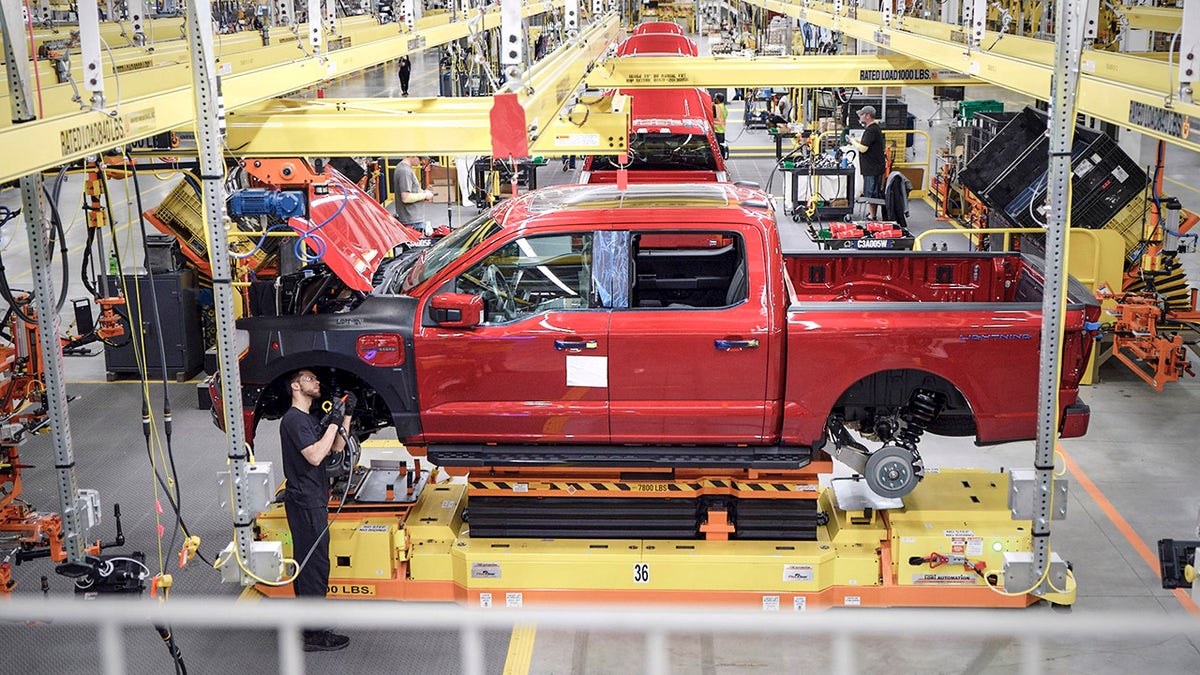
Ford expects to be building 150,000 F-150 Lightnings annually by 2023. (Ford)
"The customer will be unforgiving of quality issues," Palmer said of early F-150 Lightning buyers.
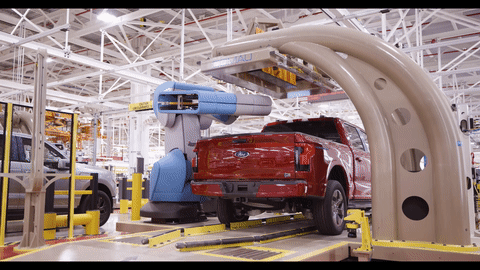
The F-150 Lightnings bed scales are tested by a large robotic device. (Ford)
The factory is also full of a variety of stationary robot arms that assist the workers and a huge device that checks and calibrates the scales that are built into the F-150 Lightning's bed by pressing down on it with a large padded device.
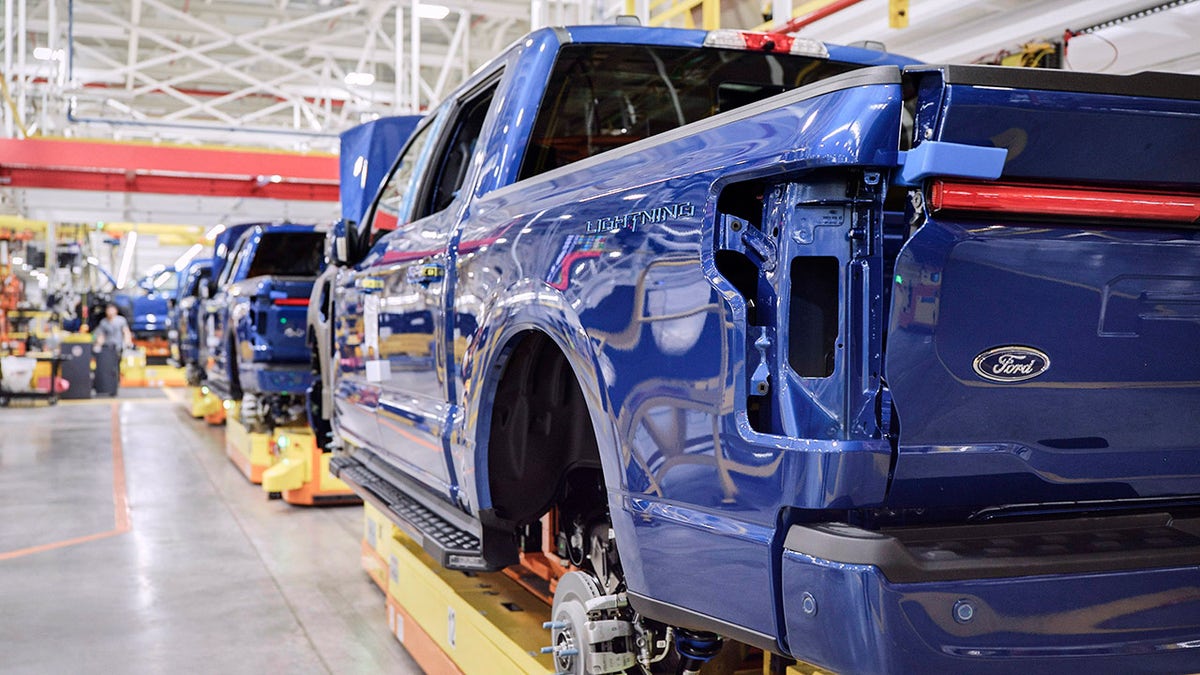
Bodies for the F-150 Lightning are built at the same stamping plant as the conventional versions of the F-Series. (Ford)
However, the strongest robot in the facility is used to install the vehicle's battery pack into its frame.
The humans have also been assimilated somewhat with a gamification system that monitors and scores the quality of their output and can track issues that appear downstream back to their source.
CLICK HERE TO GET THE FOX NEWS APP
Palmer said the innovative assembly system draws on lessons learned over the years and will be ramped up to an output of 150,000 units annually in 2023 while building pickups that he expects will boast the highest quality ratings the segment has ever seen.
"It is one of the few that will change the game for electric vehicles," he said.
"It can’t be ignored."
